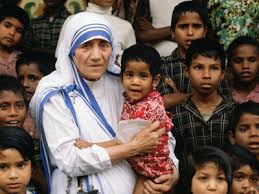What does exclusion mean?
 An exclusion means that a pupil is not allowed to attend school or go on to school premises for a period of time or permanently. Headteachers may use exclusion as a way of managing the behaviour of pupils. It is also used as a way of giving clear messages to the pupil involved and the whole school community, that certain kinds of behaviour are unacceptable.
An exclusion means that a pupil is not allowed to attend school or go on to school premises for a period of time or permanently. Headteachers may use exclusion as a way of managing the behaviour of pupils. It is also used as a way of giving clear messages to the pupil involved and the whole school community, that certain kinds of behaviour are unacceptable.





As children grow older, the opportunity cost of education is even larger, hence increasing the
pressure for children to work and earn income for the household as opposed to spending time
in education. Third, distance to schools, poor quality of education, inadequate facilities,
overcrowded classrooms, inappropriate language of instruction, teacher absenteeism and, in
the case of girls school safety.
Poverty also interacts with other points of social disadvantage, with the interaction of factors
putting further pressure on vulnerable and marginalised children to drop out (Hunt, 2008:52).
For example, orphans, migrants, lower caste/scheduled tribe children and children from
minority language groups in many, but not all, contexts have disrupted access, and are more
prone to drop out or exclusion

The Government, Non Government Organization (NGO’s) and others have all come together for the cause, primarily focusing on the unique problems concerning the children in India. They include issues related to children and work, tackling the problem of child labour, elimination of discrimination towards Girl Child, uplifting street children, indentifying the special needs of children with disabilities, and providing education to every child as its Fundamental Right
How can we overcome exclusion in education?
As children grow older, the opportunity cost of education is even larger, hence increasing the
pressure for children to work and earn income for the household as opposed to spending time
in education. Third, distance to schools, poor quality of education, inadequate facilities,
overcrowded classrooms, inappropriate language of instruction, teacher absenteeism and, in
the case of girls school safety.
Poverty also interacts with other points of social disadvantage, with the interaction of factors
putting further pressure on vulnerable and marginalised children to drop out (Hunt, 2008:52).
For example, orphans, migrants, lower caste/scheduled tribe children and children from
minority language groups in many, but not all, contexts have disrupted access, and are more
prone to drop out or exclusion
The Government, Non Government Organization (NGO’s) and others have all come together for the cause, primarily focusing on the unique problems concerning the children in India. They include issues related to children and work, tackling the problem of child labour, elimination of discrimination towards Girl Child, uplifting street children, indentifying the special needs of children with disabilities, and providing education to every child as its Fundamental Right
How can we overcome exclusion in education?
There are two types of exclusion from school:
1.A fixed period exclusion:
2.A permanent exclusion: factors for permanent exclusion-It is clear that the number of children enrolled in school has increased over time. Nevertheless, a significant proportion of children who start primary school are not completing this cycle. There are many factors associated with drop out, some of which belong to the individual, such as poor health or malnutrition and motivation. Others emerge from children’s household situations such as child labour and poverty. School level factors also play a role in increasing pressures to drop out such as teacher’s absenteeism, school location and poor quality educational provision.
http://www.indg.in/primary-education/policiesandschemes/right-to-education-bill
yes we should take steps to reduce the problem of exclusion. as it is against the right to education every child has right to be educated instead of working somwhere
ReplyDeleteThe problem of Exclusion in India is quite a major issue -Exclusion because of poverty, long distance,behavioral problems & many other reasons. Good Yasmeen you tried attempting this question on Exclusion, but would appreciate if you could come out with some measures as to how the problem of Exclusion can be tackled or overcome BY ALL THE STAKEHOLDERS
Deletei agree with yasmeen
ReplyDeleteDear kanika please mention the measures that should be taken to overcome the problem of exclusion
ReplyDelete1:The development of understanding about the education and rights to education.
ReplyDelete2:there is a big role of parents so parents should be counselted about the children's education
3:there should be development of resposibilty among the children about their behaviour.
4:teacher must feel resposible on the point of their students as teacher is not just working for pay but also for providing services to the society
Hi I think yasmeen is very true as parents play important roe they should be aware and should be consune about their children's future..
ReplyDeleteThan come the part of government to make such rules and regulation so they can get easy way for education...
Than the role of teacher come where they work on humanity ground too..